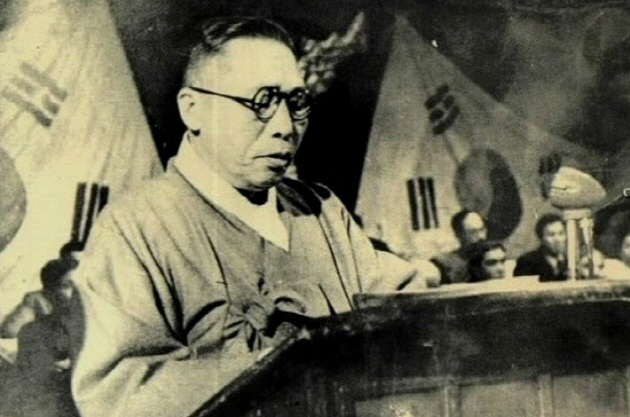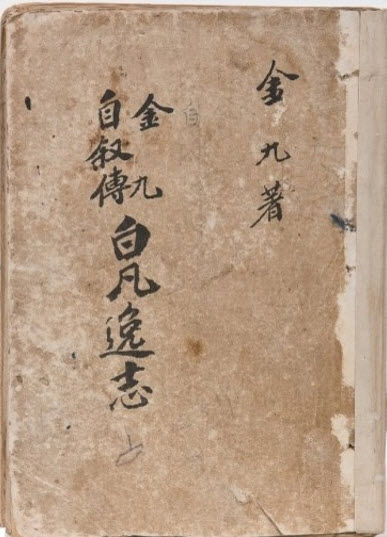
Baekbeom KIM Koo (1876-1949)
Baekbeom Ilji (Journal of Baekbeom), is the autobiography of Kim Koo, the sixth and last president of the Provisional Government of the Republic of Korea, and a leader of the Korean independence movement against Japanese colonization. A staunch advocate of reunification since Korea’s independence until his death in 1949, Kim was posthumously honored by the governments of both South and North Korea, receiving the Medal of Order of Merit for National Foundation, the Republic of Korea’s most prestigious civil honor, as well as the Democratic People's Republic of Korea's National Reunification Prize. Baekbeom Ilji was published in 1947 and has been designated as national treasure No. 1245 by the South Korean government.
On February 9-10, 36 students from SNU, The University of Tokyo, and Peking University participated in the reading camp, “East Asia Reads Together – Revival of the Reading Community,” held in Paju Book City -- a publishing community in Gyeonggi Province -- in order to read and discuss Baekbeom Ilji. This reading camp is part of the CAMPUS Asia Program, an educational collaboration between Korea, China, and Japan that aims to nurture future leaders of East Asia, organized by Professor Kyung Koo Han (College of Liberal Studies).

Original copy of Baekbeom Ilji
Students of the program also visited the famous sites of Paju city such as Imjingak, a park located on the banks of the Imjin River; Dorasan Station, which once connected North and South Korea; and the Third Tunnel of Aggression, one of the four known military tunnels under the border of North and South Korea. These sites gave the students a firsthand experience of the reality of a divided nation.
The East Asia Publishers Conference selected Baekbeom Ilji as “the book that Koreans most wished the Chinese and Japanese would read.” The participants read the book in their native language - it has been translated into English, Japanese, and Chinese - and held discussions in English.
Professor Han said that he arranged this event so that the students would be able to look into the roots of the historical conflicts between the three countries, and discuss solutions for overcoming the enmity between them. “Only when the three countries are clearly aware of the differences between their opinions, will we be able to truly understand each other.”
In Japan Kim Koo is generally considered an extremist with the Japanese Wikipedia referring to him as a “terrorist.” A Japanese student on the program shared that they were “hurt every time I read the word ‘Weh Nom’ (왜놈), which translates to ‘a Jap.’” Other students countered, “we have to understand that it was written in a time when Korea was suffering from foreign invasion.”
Despite the difficulties in overcoming their national differences, the students from the three countries engaged in a mature culture of debate and discussion, seeking points of agreement. All were able to appreciate Kim Koo’s patriotism, and his desire for peace and liberty. One Chinese student called Kim Koo “a genuine patriot,” saying that a passage of Baekbeom Ilji called “My Desire,” -- Kim’s most famous piece of writing -- recalled Martin Luther King’s “I Have A Dream” speech. Another Japanese student shared that “Kim’s sincere patriotism is something that any Japanese person can understand.”
Yoo Ji Suh from SNU, the host of the discussion, said that “the fact that Koreans, Chinese, and Japanese are able to share and discuss their different historical perspectives is already a step towards concord and reconciliation.”
Written by Hye Bin Lee, SNU English Editor, hahahybes@snu.ac.kr
Reviewed by Professor Travis Smith, Department of Asian Languages and Civilizations, tlsmith@snu.ac.kr

